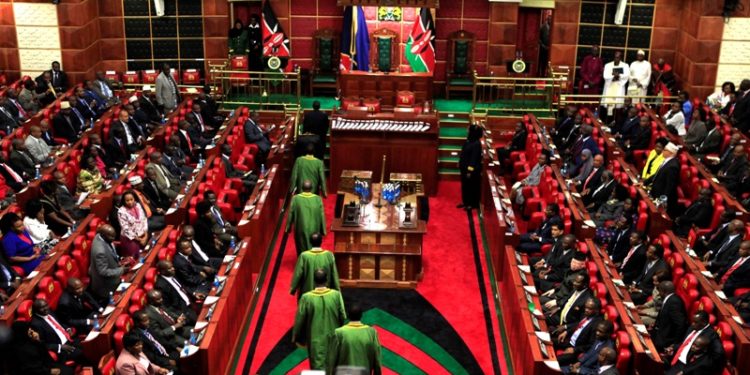A parliamentary committee has proposed amendments to the Gambling Control Bill, recommending a reduction in taxation rates for two new levies.
The National Assembly Committee on Sports is advocating for a decrease in the gambling levy from 15.0% to 13.0% of the gross gaming revenue. Additionally, the committee is proposing the complete elimination of the proposed gaming tax, initially slated to be charged at a rate of 1.0% of the same revenue.
These recommendations address concerns raised by betting firms regarding the potential impact of increased taxation on their operations. The government had initially included these taxes in the Gambling Control Bill, 2023, as part of efforts to curb the attractiveness of the Kenyan betting market and address growing concerns about excessive gambling.
The committee’s stance, supporting the reduction and removal of these levies, reflects an acknowledgment of the adverse effects that additional taxes could have on the betting industry. The committee’s report underscores the risk of increased taxes leading to the closure of legal gambling operations, the growth of illegal markets, and a subsequent decline in state revenues.
This development is crucial for betting firms facing challenges due to heightened taxation measures in recent years. Currently, these companies are taxed on their gross gaming revenue at a rate of 15.0%, considering turnover minus paid-out winnings. Additionally, they face a corporate tax on profits at a rate of 30.0%, along with gamblers who pay a withholding tax of 20.0% on each winning bet and an excise tax of 12.5% per betting stake.
The Association of Gaming Operators, representing betting firms, actively lobbied Parliament to discard the proposed levies, arguing that the industry is already burdened by excessive taxation, hindering its growth and sustainability.
The next step involves lawmakers reviewing and potentially adopting the committee’s report, paving the way for the formal enactment of the Gambling Control Bill into law. The proposed reduction and removal of these taxes, initially set to be charged on the gross gambling revenue of betting firms, aim to alleviate some of the financial pressures these companies face, safeguarding their earnings to a certain extent.
In recent years, betting firms have experienced declining profits amid escalating taxation and changes in gambling behaviors, with some bettors reducing their stakes or ceasing betting activities altogether. The ongoing debate and potential revisions in taxation policies within the gambling industry highlight the delicate balance required between taxation for revenue generation and ensuring a conducive environment for the sustainable operation of betting firms.















